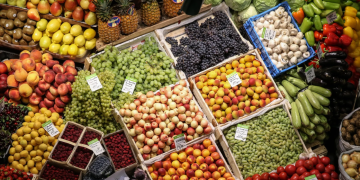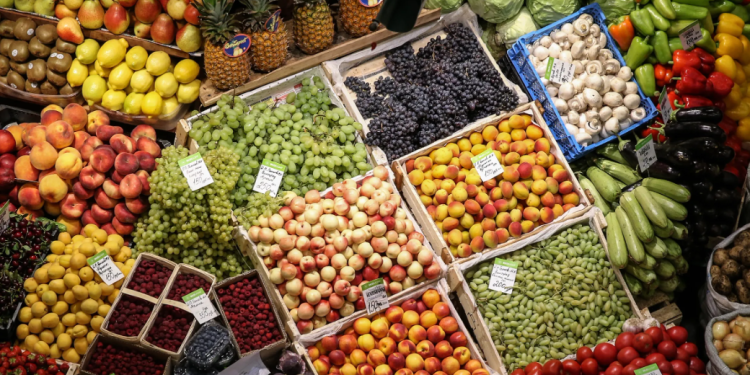#Egypt #AgriculturalExports #SustainableFarming #Farmers #AgriculturalInnovation #GlobalMarkets #QualityStandards #EconomicImpact #SelfSufficiency #FarmEducation
Explore Egypt’s agricultural landscape and its significant contribution to the country’s economy. Discover how strategic initiatives have led to a 50% increase in agricultural exports since 2014. Delve into the nation’s self-sufficiency in vegetable and fruit production, driving international exports, and fostering quality through enhanced farming practices.
In recent years, Egypt’s agricultural sector has emerged as a powerhouse, significantly impacting the nation’s economy. According to Dr. Ali Abdul Mohsen, the Head of the Economic Affairs Sector at the Ministry of Agriculture, agricultural production accounts for 18% of Egypt’s exports and contributes 15% to the country’s Gross Domestic Product (GDP).
During an interview with journalist Lubna Asal on the show “Al Hayat Al Youm” on Al Hayat channel, Dr. Abdul Mohsen revealed a remarkable 50% surge in agricultural exports since 2014. This growth can be attributed to the Ministry of Agriculture’s multifaceted approach, including the opening of new markets for Egyptian agricultural exports. More than 80 new markets have been established in various countries, including the stringent Japanese market, known for its high-quality standards and rigorous inspections.
Egypt boasts self-sufficiency in the production of most vegetables and fruits, with surplus produce being exported worldwide. Driven by a commitment to enhance production and elevate product quality, the focus has shifted towards educating farmers about improved farming techniques. These initiatives aim not only to increase yields but also to preserve the overall quality of agricultural products.
Latest Data Highlights:
- Egypt’s agricultural exports have increased by 50% since 2014.
- The agricultural sector contributes 18% to Egypt’s total exports and 15% to the GDP.
- Over 80 new markets have been opened for Egyptian agricultural products globally.
Egypt’s agricultural success story exemplifies the transformative power of strategic planning and sustainable practices. By investing in farmer education, opening new international markets, and maintaining stringent quality standards, Egypt has secured its position as a leading agricultural exporter. This growth not only bolsters the economy but also ensures a sustainable future for the nation’s farmers and the agricultural industry as a whole.































